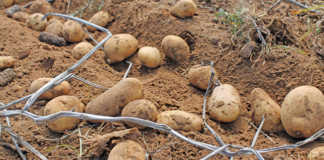The State of the Nation address recently delivered by President Jacob Zuma received a lukewarm response from agricultural leaders and a cold reaction from opposition parties who accused the president of failing South Africans by repeating broken promises made in his previous addresses.
Opposition parties critical
In a joint statement issued by the DA, FF+, IFP, ACDP, Azapo, Cope, UCDP and the UDM, opposition parties expressed extreme disappointment in the president’s message. They said he failed to provide South Africans with a vision for the future, a realistic implementation plan and clear, determinable deadlines to which he could be held accountable.
“South Africans wanted to hear about his plan to create more jobs for young South Africans; we received assurances instead of commitments. He re-hashed old plans on infrastructure, was blatantly misleading on stability in the mining sector and provided no new ideas on a way forward to ensure the growth of our economy,” opposition parties stated.
Agricultural leaders said proof of government’s commitment to the promises made during the State of the Nation address would be reflected in the national budget set to be tabled in parliament by finance minister, Pravin Gordhan on 27 February.
Land reform
Zuma said government planned to accelerate land reform, but did not disclose details about how this would be done. He said the land redistribution programme should be fast-tracked to meet redistribution targets. In order to achieve this, Zuma said government would do away with the ‘willing-buyer, willing-seller’ principle in favour of the ‘just and equitable’ principle for compensation, as set out in the Constitution.
Zuma said it was encouraging that farmers had called for the fast-tracking of land reform and support for emerging farmers. He also made mention of proposed amendments to the Restitution of Land Rights Act “in order to provide for the re-opening of the lodgement of restitution claims, by people who missed the deadline of December 31, 1998”.
Under consideration were “exceptions to the June 1913 cut-off date, to accommodate claims by the descendants of the Khoi and San, as well as heritage sites and historical landmarks”. Dr John Purchase, CEO of the Agricultural Business Chamber, said if government was serious about speeding up land reform, re-opening claims and accommodating pre-June 1913 claims by Khoi and San descendants, the Treasury would have to direct significant funds to the Department of Rural Development and Land Reform (DRDLR) to finance these plans.
Budget
Purchase said the fiscus allowed little room for manipulation and generosity as the state had to borrow money to cover expenses. “It is unlikely that Treasury will be able to divert more money to the DRDLR to help speed up the redistribution process and fund additional claims,” said Purchase.
“We welcome the commitment expressed by the president to resolve land reform amicably within the framework of the Constitution and the law, but uncertainty remains around the newly adopted ‘just and equitable’ principle for compensation.” Rural Development and Land Reform Minister, Gugile Nkwinti has, in previous budget speeches, pointed to a lack of funds as one reason why his department was struggling to finalise land claims.
Purchase said it was unlikely that government’s plan, to opt for the ‘just and equitable’ principle for compensation, would reduce the cost of land reform and speed up the redistribution process. “Market value is one of the most important factors in determining ‘just and equitable’ compensation, so the state will not be able to buy land for far under market value,” he said.
Uncertainty
Agri SA president, Johannes Möller said the land reform process had been riddled with uncertainty, corruption, neglect of productive land, allegations of non co-operation by landowners and threats of nationalisation. He said Zuma’s announcement about the re-opening of land claims would prolong the uncertainty of the past 20 years, discourage investment in the industry and hamper meaningful transformation.












